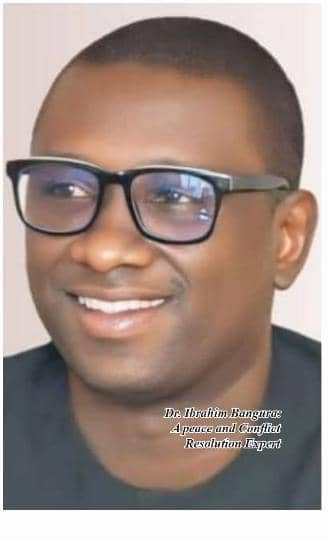By Marcus Bangura
In every generation, there arises a figure whose voice resonates louder than the political noise surrounding them, someone who doesn’t merely react to the times but helps redefine them. In today’s Sierra Leone, that figure is Dr. Ibrahim Bangura.
To ignore him is to misunderstand the subtle, seismic shift occurring in our national politics. While the old guard continues to perform the same tired routines, patronage, populism, and polarisation, Dr. Bangura is scripting a new language of engagement. One based not on slogans but substance, not on loyalty but logic, not on allegiance to parties but commitment to principles.
He is not a politician in the traditional sense. Yet, his influence now rivals those who have held office for decades. Through his academic rigour, civic presence, and fearless public commentary, Dr. Bangura has become a symbol of intellectual resistance to business-as-usual politics. And in a country where critical thinkers are often silenced or sidelined, his refusal to retreat is in itself a quiet revolution.
What makes him uniquely compelling is his ability to connect the dots between governance failures and their human cost. He speaks not from a place of partisanship, but from a deep understanding of how systems shape society, and how, if not reformed, those systems will continue to fail the many while favouring the few.
The political establishment would do well to take him seriously. The youth are listening to him. The disillusioned middle class is quoting him. Civil society actors are aligning with him. And even some within the power structure, albeit privately, are acknowledging his growing relevance.
This is not a fleeting moment of popularity. It is the beginning of a shift, one that transcends party politics and challenges the very foundation of how power is accumulated, exercised, and resisted. Dr. Bangura represents a demand for a new kind of politics: one rooted in evidence, ethics, and equity.
To ignore this unfolding political shift is to misread the public mood. Across communities, there is a quiet uprising of minds. People are growing weary of empty gestures, and they are gravitating toward voices that offer clarity, integrity, and courage. Dr. Bangura’s emergence is not accidental, it is a response to a vacuum.
For a country like Sierra Leone, where the social contract is frayed and trust in institutions is low, the consequences of ignoring credible reformers are always dangerous. History teaches us that societies that suppress truth-tellers eventually collapse under the weight of their own lies.
The time for dismissing independent thinkers as “idealists” or “outsiders” is over. Dr. Bangura’s contributions to national discourse are not just insightful, they are instructive. He offers not just criticism, but direction. Not just outrage, but alternatives.
Whether or not he seeks political office is beside the point. His impact is already being felt. In community halls, radio stations, WhatsApp forums, and academic spaces, the conversation is shifting. And that shift has a name.


